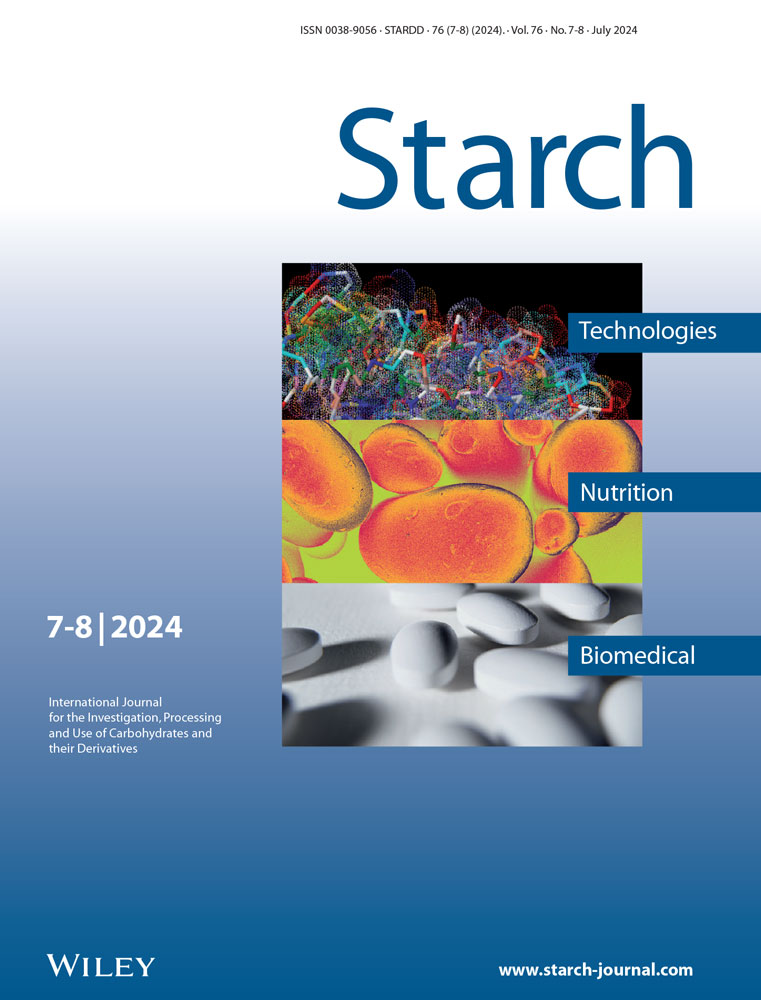Effect of pH on the Properties of Potato Flour Film-Forming Dispersions and the Resulting Films
Abstract
Biodegradable films are considered an alternative to petroleum-based plastics to solve environmental problems. In this study, potato flour films are prepared with dispersions at pH 3, 5, 7, 9, and 11. The film-forming dispersion at pH 7 shows the highest apparent viscosity. Dispersions at alkaline conditions show a reduction in particle size, resulting in a smooth film surface. Films at alkaline conditions present a yellow appearance and have the lower transmittance. The film at pH 5 has the highest retrogradation enthalpy and glass transition temperature, while its moisture content and solubility are the lowest. The water contact angle increases from 33.33° to 93.67° with the increase in pH. However, pH has no significant effect on the water vapor permeability. The tensile strength and elongation at break increase slightly with the increase in pH. Overall, pH modifies the properties of potato flour films. Film with appropriate performance can be selected based on actual needs, such as the use of packaging materials for food preservation.
Conflict of Interest
The authors declare no conflict of interest.
Open Research
Data Availability Statement
Data sharing is not applicable to this article as no new data were created or analyzed in this study.




